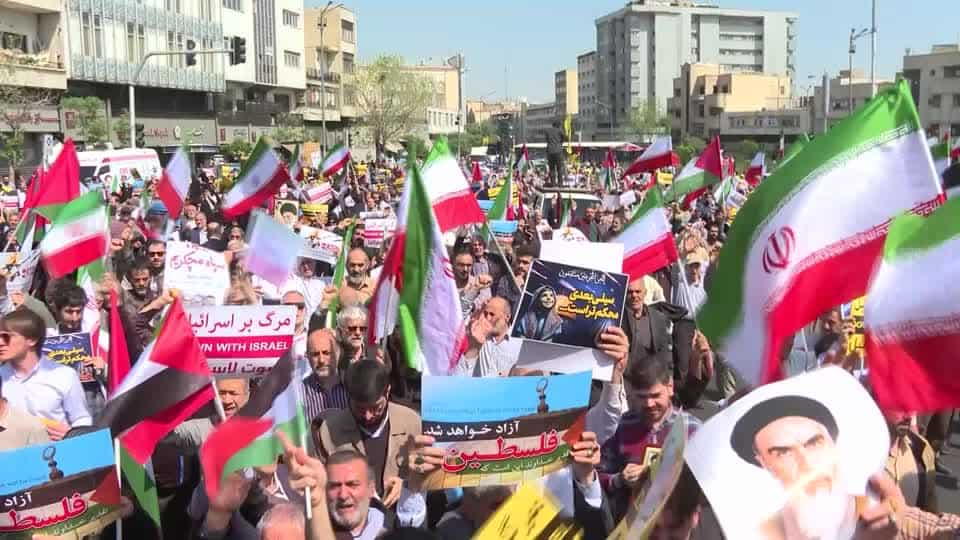Overview
Iranians in Tehran protested after an alleged Israeli attack in Isfahan. Tehran downplayed the incident and indicated no plans for retaliation, potentially preventing a wider conflict in the region.
Protests in Tehran
Iranians in Tehran took to the streets following Friday prayers in response to what sources described as an Israeli attack on Iran.
Details of the Incident
Explosions were reported in Isfahan on the same day, believed to be part of the Israeli attack. Tehran, however, minimized the event and stated its lack of intention for retaliation, aiming to prevent a larger conflict in the region.
Response and Diplomatic Efforts
The limited nature of the attack and Iran’s restrained response suggested successful diplomatic efforts to avoid a full-scale war. This followed an Iranian drone and missile attack on Israel the previous week.
Media Reports
Iranian media and officials mentioned a few explosions caused by air defense systems intercepting three drones over Isfahan. They referred to the attackers as “infiltrators” rather than explicitly blaming Israel, thus avoiding the need for immediate retaliation.
Warning from Iranian Commander
Iranian army ground forces commander Kiumars Heydari warned Israel of severe consequences if it repeats such actions in the future.
Escalating Tensions
Violence between Israel and Iranian proxies in the Middle East has escalated over the past six months, particularly in Gaza. There are concerns that the ongoing conflict could lead to a direct confrontation between the two nations.
Israel had vowed to respond to the previous drone and missile attacks, which marked the first direct assault on Israel by Iran. Despite causing no casualties due to successful defense measures, the attacks heightened tensions in the region.
The recent attacks were in retaliation for an Israeli airstrike on April 1 that targeted a building in Iran’s embassy compound in Damascus, resulting in the deaths of several Iranian officers, including a high-ranking general.
















































